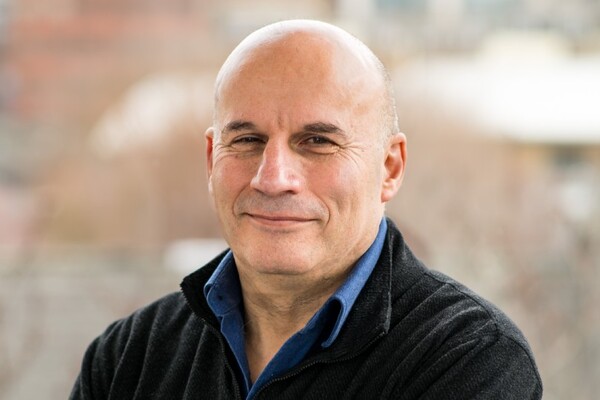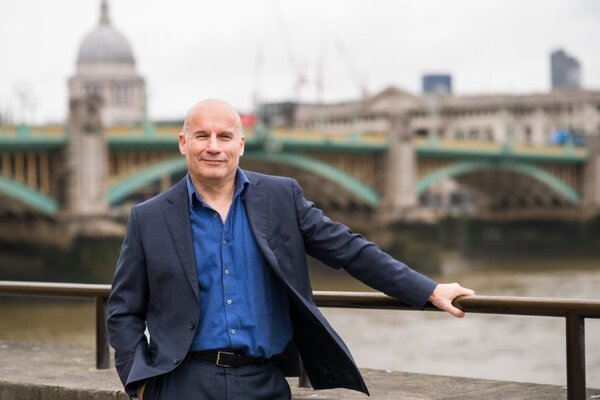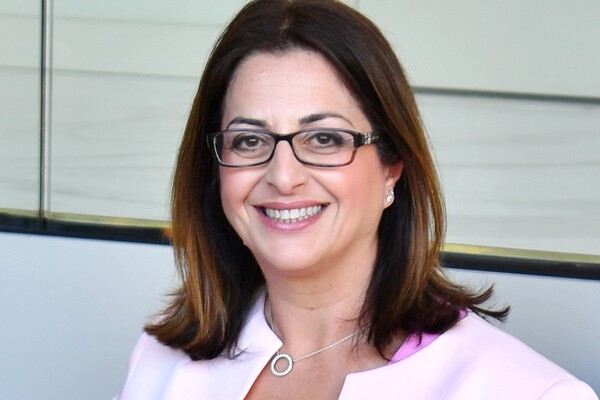Mark Tanzer: 'The signs are that Labour understands our industry'
 James Chapple
James ChappleFollowing the general election, Abta chief executive Mark Tanzer tells TTG’s James Chapple why the industry has a more positive message to spread post-Covid, and why he’s looking forward to working with the new Labour government.
It’s easy to think of a change of government as a seismic moment, but after six changes of prime minister since 2010 – as many as there were in the 30 preceding years – travel has become, if not wholly adept, but certainly accustomed to navigating an ever-changing political landscape.
Abta chief executive Mark Tanzer is certainly unfazed; he has seen eight PMs come and go during his tenure. And while the eighth, Keir Starmer, leads Labour back to power, he is used to taking on the myriad challenges travel must face down within new political parameters, both here in the UK and overseas.
"It’s funny," he muses. "Since I’ve been here at Abta, which is quite a long time now, I’ve come to see things the way you would a camera with different focal lengths. Some things, the impact can be really quite immediate, like wildfires. Then you think, is that more urgent than tackling climate change? No, they’re equal, but we see them in different timeframes."
It’s a typically measured assessment from Abta’s long-time chief. He’s hopeful of more stability under the new Labour administration, acknowledging the stasis that set in post-Brexit and during the pandemic, which was followed by the existential crisis within the ruling Conservative Party.
The subsequent reckoning saw them get a hiding from the electorate on 4 July.
It’s exactly a month to the day since the election when TTG catches up with Tanzer, who senses opportunity. "We’re always talking to shadow ministers, as well as to government, to make the case for our sector, and we had a good response in the run-up to the election," he says.
"The signs are they [Labour] understand our sector, its power in terms of job creation, and the role it plays around the country in their constituents’ lives. And seem willing to work with us to resolve some of the issues we face."
Tanzer singles out Mike Kane, the new aviation and maritime minister. He addressed Abta’s annual policy seminar Travel Matters last year while in opposition, as well as the Airlines 2023 conference, and carries over his shadow cabinet brief into government. "He’s not coming in completely unsighted," says Tanzer.
The big question is whether he will be around long enough to help effect change. "Even though the civil service stays the same, you’ve got to start again with new ministers," Tanzer cautions, highlighting reform of the Atol scheme and Package Travel Regulations as two areas where progress could be perceived to have stalled.
"Let’s hope we have a slate [of ministers] that stays in position for a reasonable time so we can work together."
For a full five-year term? "Five years would be very bold," Tanzer concedes, adding: "I think 12 months would be good. But with a large majority and clear agenda for economic growth, it’s in everyone’s interests to keep people in position for longer."
New EU border rules
So to business. Tanzer is quick to praise Starmer for his efforts to reset the UK’s strained relationship with the EU. "It’s not just a big trading partner, but a big destination for members," he says. "As we head into negotiations, it’s important there’s open dialogue and goodwill on both sides."
In perhaps sharpest focus is the EU Entry-Exit System (EES), new biometric checks at external EU borders – such as those with the UK – that will replace passport stamping from 10 November.
Tanzer says Abta is seeking "sensible, pragmatic solutions" with the EU, which has committed to a six-month soft launch to smooth border transit in those destinations where the facilities need upgrading.
"What we don’t want is huge queues," he warns. "Passengers don’t want that, the destinations don’t want it, the EU doesn’t want it and we don’t want it.
"Ultimately, once it’s in, it will speed things up. There will be more automation. Once we’ve gone through the initial pain of registering for the first time, it will probably be worth it. I just think the process of getting there will be a bit torturous."
The government has since pledged another £10.5 million to support a smooth roll-out, with £3.5 million going to each of the Port of Dover, Eurostar at London St Pancras International station and Eurotunnel at Folkestone.
Abta, meanwhile, says it is working with members to help them get clients ready for the transition, with resources available from its member zone and a consumer-facing web resource.
It will host a video conference call with representatives from the Department for Transport and the Foreign Office on Tuesday 24 September to bring members up-to-speed with developments.
Youth mobility hopes dashed?
Elsewhere, Abta’s pre-election manifesto re-stated its desire for a new reciprocal youth mobility framework with the EU, which would allow young people to work on the continent and vice-versa.
Earlier this year, Abta’s director of public affairs Luke Petherbridge insisted the association’s lobbying had "moved the dial" on youth mobility, and as Starmer sense-checked the mood on the continent and in Brussels, there did – fleetingly – appear to have been a breakthrough.
However, with the EU appearing to be seeking youth mobility as a pre-requisite for a new post-Brexit relationship with the EU, the prime minister subsequently played down an immediate prospect of an accord.
Tanzer is conscious of how the issue is framed when it next takes the limelight. "We recognise free movement and immigration is going to be a political hot potato," he says, cautiously, as he alludes to the rioting that followed the murders of three young girls in Southport in July, which was stoked by online disinformation.
"You’ve only got to look at what happened at the weekend [3-4 August] to see how combustible the whole issue is," he continues. "No one’s talking about forgetting Brexit. Youth mobility is not free movement. It’s a temporary visa regime that sees everyone go home when their visa expires. It doesn’t give people the right to residence, the right to remain, the right to bring family. I think in both directions it makes sense."
There are other areas where Abta would welcome progress, such as on mutual recognition of qualifications – like those for guides and coach drivers – and commonality of certain standards.
"None of this is compromising the underlying principles people voted for through Brexit," he adds, stressing the EU – in or out – will remain the UK’s most important destination.
The war for talent
Closer to home, Tanzer is confident the industry has stemmed some of the post-pandemic talent leakage, and is making good progress on proposed new level 3 travel and tourism courses for 16- to 19-year-olds following a Department for Education review of provision from 2026.
He praises the work of the Tourism Industry Skills Working Group, which was convened by Abta when it was confirmed government was planning to defund existing courses. "Now we can go out with a more positive message," says Tanzer, with new arrangements in place.
"A recurring theme over the past few years has been the challenge attracting new talent," Tanzer continues. "I’m not hearing, to the same degree, about acute shortages. But you can understand people looking at travel immediately after being shut down for two years and thinking it a risky place to be. Now it’s back and people are travelling in more conventional patterns, it’s up to us again to sell the virtues of working in the industry."
Tanzer also lays some of the blame with Brexit and the end of posted working, highlighting how many of the industry’s current senior leaders took their first steps in the industry as overseas reps – something a reciprocal youth mobility scheme with the EU would address.
Travel, though, still has a fight on its hands. "There's a war for talent across multiple sectors," Tanzer warns. "We have to make the case for why travel is an industry in which you can develop all sorts of transferrable skills – sales, technology, digital marketing and those soft skills needed to deal with people and tricky situations."
Tanzer is keen to promote travel as a great industry to work in, but not necessarily one for life. "A spell in travel can be part of people's continuing development as a professional," he says.
But what about the elephant in the room? "I'd love everyone in travel to be paid more, but the industry is never going to compete with The City," he adds.
"There are things you can get from travel that make it a compelling option, though – people tend to stick around [in travel] for those things you don't get from other industries. We need to make the most of that. It's up to us to sell the virtues of working in the industry."
'Force for good'
Zooming out further to a more medium-term focal length, while Labour's agenda for outbound travel is certainly not anti-growth, it is framed in terms of addressing the environmental realities the sector – and the world – must face up to.
"The support for sustainable aviation and development of sustainable aviation fuel [SAF] is definitely encouraging," says Tanzer. "Their 2030 strategy embraces a broad decarbonisation goal and move towards net zero, such as getting an SAF industry up and running and giving investors confidence to invest in SAF plants knowing there will be a price certainty mechanism.
"There's a general sense of urgency around climate change and decarbonisation. It's all around us. In travel, we see the stark impacts in destinations. Record high temperatures, the wildfires, the challenges for the ski sector. We're very aware of the speed at which this is becoming a really big issue.
"I'm very pleased they've [Labour] come to a constructive approach on these issues, not one where they just raise taxes so people don't fly. That's not the answer. Our position is that travel and tourism is a force force for good. Yet we recognise the challenges it creates in terms of its footprint and contribution to emissions."
Reframing sustainability challenges
Several airlines have publicly committed to introducing small quantities of SAF into their fuel mixes, some as little as 1%, ahead of the 10% mandate coming in 2030. Tanzer rejects any notion that this could be perceived as greenwashing. "There is constraint," he says. "The reason airlines are only committed to minimal percentages is because there isn't much of the stuff around.
"No one's going out saying they've cracked this or that they should get a gold badge for using 1% SAF. The supply has to be there. So getting plants up and running and producing is an absolute priority – 2030 is coming up fast."
The Advertising Standards Authority has narrowed in on travel, and is taking an increasingly stern view of any exaggerated or absolute claims on green issues in ads, as Intrepid Travel, Virgin Atlantic and Hurtigruten Expeditions have all found out the hard way with slaps on the wrist.

It's something for firms to think about. Moreover, studies suggest the pressure will start to come – and is already coming – from consumers. Tanzer, though, worries that travel's messaging on sustainability is at risk of becoming "washed out" at exactly the wrong time.
"I think it has already started," he says. "We need to find new language. We have to unpack these big words and demonstrate things in real terms – what is the result of changes in the way people and the industry behave?
"Sustainability is such a broad term, and it has been overused. Not just within travel, but generally. Its meaning has become washed out. Sustainable for who? The industry? The destination? People? The planet? It covers social impacts, animal welfare, and so much more. Yet we're covering all that with a single label – sustainability.
"Finding words that mean more to people, that resonate with them and relate to their own behaviours, is crucial. We're right at the point now where we really need to reframe the challenge and the language we use to talk about it."
Travel appetite 'undimmed'
It's been 45 minutes and we've only mentioned Covid once. Tanzer concedes that while the pandemic "still casts a long shadow", he is a self-styled "natural optimist".
"People's appetite to travel is undimmed," he says. "Our members' turnover is going to be back to – and probably exceed – pre-Covid levels this year. That's very encouraging, and I would say a testament to people placing their annual holiday high on their list of disposable priorities.
"I'm also more than hopeful we can build a good relationship with the new government, that they will recognise the importance of our sector goes beyond the economic to social importance, and that they will want to preserve and grow it responsibly.
"And I'm confident too the industry is in a good place to take on the challenges that lie ahead."
Sign up for weekday travel news and analysis straight to your inbox

James Chapple
Supplier Directory
Find contacts for 260+ travel suppliers. Type name, company or destination.

















